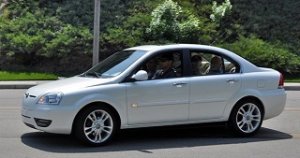EV Start-Ups: Not for the Faint-of-Heart

Why would anyone think it would be easy to enter and compete in a 110-year-old market with 10 – 15 OEMs with market cap over $100 billion apiece, each with enormous economies of scale and laser-precision supply chains?
It was only a few years ago that the EV company called Coda went under. Its value proposition: A small, ugly EV with a 75-mile range, MSRP $42K, sold by a company with no track record, whose probability of being around to make good on its warranty was dubious at best. Nearest competitor: the Nissan Leaf (which itself wasn’t successful) with better range, far lower price-tag, distinctive styling, sold by one of the most successful companies in world history, captained by Carlos Ghosn, auto superstar. What could go wrong?
I visited Coda at their posh Santa Monica headquarters and offered my help as a marketing consultant (though I’m not sure what I would have done had I gotten the gig). “Nah, Craig, we got this.” “OK, sounds good,” I smiled, heading out the door for a jog on the beach before driving home. I needed to clear my head after an afternoon of pure nonsense.
A month or so from that point, investors stopped pouring money into the toilet, and Coda closed its doors almost immediately. What type of mirage they were looking at in the first place is anyone’s guess.
Moral: Don’t kid yourself about the feasibility of offering a new product, especially in an enormously capital intensive space, competing against people who have been proving themselves successful since the days of Orville and Wilbur. If you don’t have something that offers a huge advantage, with huge financial capacity to back it up and protect it, stay home.

Craig,
You were lucky not to get involved with Coda !
The company was owned and financed by as slippery dishonest and disreputable a bunch of corporate shysters, whoever put on a pair of multi-coloured suspenders and modeled themselves on Gordon Gecko.
The vehicle was produced from from obsolete 10 year old dies and automotive technology sold by Mitsubishi to an oil/armament manufacturer owned by the PLA in the PRC and produced by a shadowy PLA General better known for his role in PRC government sponsored commercial espionage.
The battery and IT components were not only obsolete but exceedingly poor quality.
Sadly, Electric vehicle manufacture has been marred by greed, naivety, incompetence and lack of reality. It’s always attracted a mixture of crooks, idealists and romantics without the faintest idea of the Automotive industry.
Elon Musk, Carlos Ghosn, Barry Barry Shrier, Bill Ford jnr, Lord Jamie Borwick, Henrik Fisker, GM BYD and many others were all sincere pioneers.
Only Elon Musk has been truly successful because he defied conventional wisdom, and realizing the market wasn’t ready for commuter vehicles or commercials, produced a high quality expensive vehicle aimed at affluent first adopters. He then built supporting charging infrastructure. Elom Musk is one of those rare idealist who are also natural industrialists.
But the most effective deployment of EV technology has been Toyota.
Toyota risked it’s reputation for reliability by introducing Hybrid technology and supported it’s small Prius by extending EV hybrid technology to the luxury Lexus range.
While others waited for governments to mandate or assist with EV introduction, Toyota kept on developing realistic technologies and making them acceptable to the market by degrees.
The true pioneer of modern EV automotive technology isn’t the showy Tesla model S , or the Leaf, but the humble Toyota Prius.
Like the Netherlands, the French and UK governments make grand announcements and great plans for the future, but these are empty pledges without major advances in ESD storage.
Toyota engineers and scientists are well advanced in building ‘post-lithium’ ESD technology, but if that fails, the only way to fulfil government expectations will be HFCV technology.